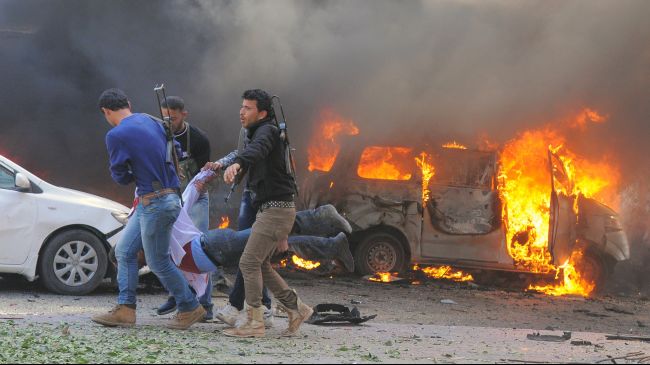US-Zionist servants at work: France, Turkey plot to assasinate Assad: Report


A Lebanese news website says it has obtained a documentary movie revealing a plot hatched by French and Turkish spy agencies to assassinate Syrian President Bashar al-Assad.
Lebanese Asianews website says the movie, which has been produced by the well-known Syrian media activist Khedar Awarake, shows confessions by those who were on a joint mission to kill top Syrian officials.
According to the report, Syrian security organizations have recently defused assassination attempts by Turkey and France’s intelligence agencies on the lives of Assad and Syrian Foreign Minister Walid al-Muallem.
The report added that Turkish and French spy agencies have set up a joint operation room aimed at accomplishing the assassination mission. It added that their mission had overlapped with operations of security services of Saudi Arabia, Qatar and the US on many times.
The report said that they also had tried to recruit high-ranking officials in Syrian governmental offices, including the office of Muallem and the presidential palace in Damascus.
Syria accuses Saudi Arabia, Qatar, Turkey as well as some Western countries of fanning the flames of violence that have erupted in the country since March 2011.
The Syrian government says the chaos is being orchestrated from outside the country, and there are reports that a very large number of the militants are foreign nationals.







